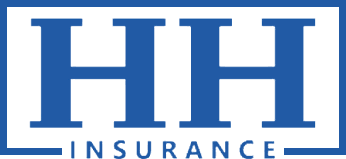Homeowners insurance protects your home and possessions from theft or damage, but it can also seem confusing to figure out. If homeowners insurance confuses you, you’re not alone. Here’s a crash course on how homeowners insurance works, how it can help you, and making sure you get the lowest premiums you can.
Most mortgage companies will require you to have it before taking out a loan or financing a residence, but even if it isn’t required, it’s still a very important thing to have. There are three different levels of Tampa homeowners insurance: actual cash value, replacement cost, and guaranteed or extended replacement cost/value.
Actual cash value covers the cost of the house plus the value of your belongings after depreciation. This means if you bought something for $20 five years ago and it’s now worth $10, they’re going to give you $10 if it’s damaged in a house fire or stolen.
Replacement cost policies cover the actual cash value of your home and possessions, not including depreciation.
Guaranteed or extended replacement cost/value is a plan that will cover the costs to repair or rebuild your home, even if it’s more than your policy limit. This means you have more coverage than you’re paying for, but typically there’s a 20%-25% cap to this.
Most Tampa homeowners insurance will cover:
- Damage to the interior or exterior of your home: in case of a fire, bad hurricane, or even vandalism, you will be compensated for repairs or rebuilding your home. Clothing, home decor, and furniture is also covered by your homeowners insurance. Things that are lost in certain natural disasters, such as floods and earthquakes, along with poor home maintenance might not be covered by some providers. However, HH Insurance offers flood insurance.
- Personal liability for damage or injuries: this will protect you, and your pets, from lawsuits filed by others. These policies can cover up to $300,000 to $1 million worth of damage.
- Hotel or house rental while your home is being rebuilt or repaired: this part of the policy might be one you’ll want to have if something were to cause you to be forced out of your home for a while. It can cover rent, hotels, meals, and other costs that may come while you’re waiting to go back home.
It’s important to do your own research when looking for homeowners insurance. When looking, think about the things that might make your insurance rates go up, such as the location of your home (Does that area get a lot of hurricanes? Are there high crime rates?), your family (Kids? Pets?), and aspects of your home (Pool in the back? Is it near lots of trees or water?). All of those things could cause your homeowners insurance to be more expensive. If your rates are fairly high, you can do these things to help bring it down:
- Have a home security system
- Raise your deductible
- Look for policy discounts (if you have auto or health insurance from the same company, they might give you a discount)
- Pay off your mortgage
Another important thing to remember is to not settle for the first price you are quoted. Get in contact with other Tampa homeowners insurance companies to see what their rates would be. You should also consistently review your policy to make note of any changes that occurred that could help you lower your premium. Changes could be anything from a child going off to college, the installation of a fire hydrant near your home, or updating the security system in and around your home. You can also ask around to see what provider your friends, family, or neighbors recommend.
**This blog provides a brief overview of the terms and phrases used within the insurance industry. These definitions are not applicable in all states or for all insurance and financial products. This is not an insurance contract. Other terms, conditions and exclusions apply. Please read your official policy for full details about coverage. These definitions do not alter or modify the terms of any insurance contract.
